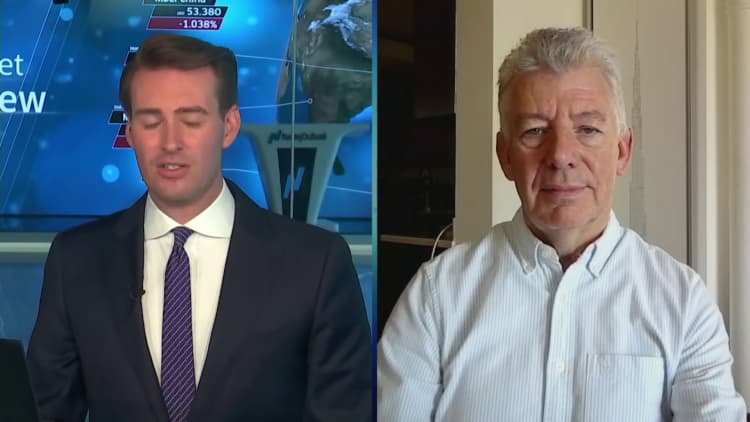Dubai Damac property boss says floods were overexaggerated

Cars drive in a flooded street following heavy rains in Dubai on April 17, 2024.
Giuseppe Cacace | Afp | Getty Images
Hussain Sajwani, the chairman of Damac Properties, one of the United Arab Emirate’s largest private real estate developers, sought to downplay the severity of flooding in the country earlier this month, saying there were only “pockets of problems.”
On April 16, the normally dry desert country in the Gulf was pummeled with roughly a year’s worth of rain in less than a day, more than it has ever seen in a single storm since records for the UAE began in 1949.
Flash floods that formed led to water engulfing cars, in some areas fully submerging them, leading hundreds of drivers to abandon their vehicles on roads to escape the rising water levels. The deluge also closed schools and businesses, grounded hundreds of flights, and destroyed cars, businesses and other property. It threw daily life into chaos as many residents lost power and running water or were trapped either inside their homes or in airports, or wherever they happened to be when the storm hit.
Damac’s Sajwani conceded there was chaos at the airport, but said the UAE had recovered much faster than other nations would have.
“I think the subject was overexaggerated, honestly,” he told CNBC’s Dan Murphy on Sunday, speaking at the World Economic Forum’s “Special Meeting on Global Collaboration, Growth and Energy for Development” in Riyadh, Saudi Arabia.
“Fine, we get some, in one of the malls, some damage. But if the mall is 3 million square feet … and if a 100 meter leakage or whatever happens — it’s not the end of the world and it was fixed the next day.”
He explained that he arrived in Dubai from London just a few hours after the rains had stopped, and visited all the major properties that belong to his company.
Traffic diverts away from a flooded street in Sharjah on April 20, 2024, after the heaviest rainfall on record in the UAE.
Ahmed Ramzan | Afp | Getty Images
“There were pockets of problems, I’m not saying no, but it was overly exaggerated … Any country, I mean, you see floods and things like that happen in Miami regularly and houses get destroyed and people get evacuated. That’s today with the environment changing. Everywhere in the world you’re getting those kinds of storms, OK, and Dubai has been hit with that. But they managed it very well,” he said.
He later added he didn’t see that lessons had to be learned as it was an unusual storm. “It hadn’t hit the country for 75 years,” he said.
The UAE’s National Center of Meteorology said that eastern parts of the country measured up to 250 millimeters — 10 inches — of rain in less than 24 hours. By contrast, in a full year the UAE typically sees 5.5 to 8 inches of rainfall per year.
Due to a lack of drainage infrastructure and the fact that the country’s urban spaces are paved over, much of the water had nowhere to go, exacerbating the flooding in many areas.

The country’s cleanup efforts are still ongoing. One multistory apartment building near the border of Dubai and the emirate of Sharjah cracked and tilted over due to structural damage from the storm, and was fully evacuated because it was in danger of collapsing.
Some Dubai developers reportedly offered free repairs and vowed to take action after the record rainfall. Damac told Al Arabiya English that it had worked around the clock with the local government authorities to help residents, deploying several tankers to collect floodwaters.
A Damac official also told the news outlet that its upcoming developments had not been impacted by the flooding. Speaking to CNBC, Sajwani said that his firm’s properties were largely left unaffected and it “almost had no incidents” — but couldn’t confirm whether residents would receive compensation.
“The good thing we did a) our infrastructure has been done, in my view, better than a few others. The other thing is, two days before the storm come — because the warning was there — I had a Zoom [call] from London with our management. And we agreed to put an action plan. And we took a very good action plan. So we were ready for it.”
“We had zero impact. I mean zero impact. I’m telling you 98% of our units, maybe more, were intact,” he added.
—CNBC’s Natasha Turak contributed to this article.







